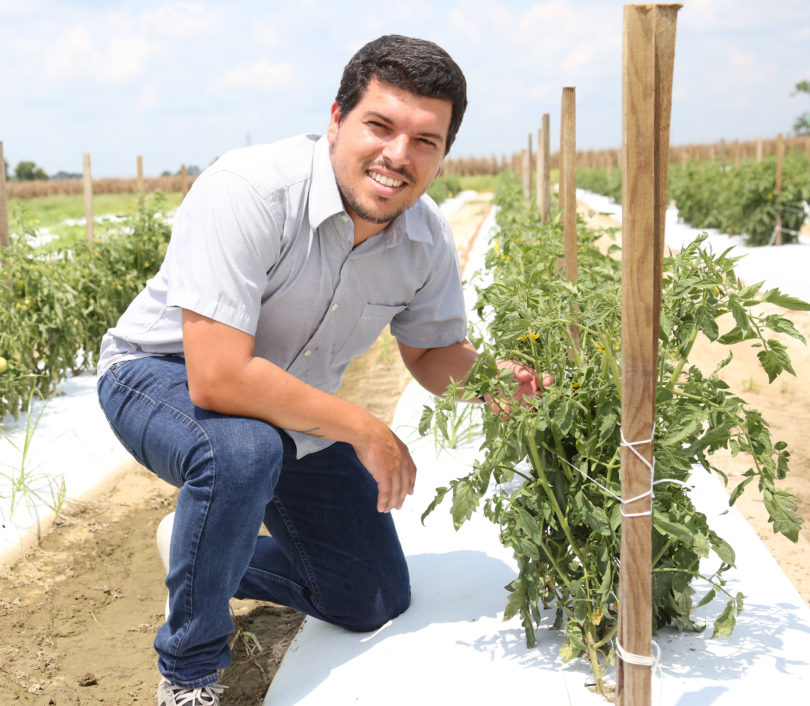University of Georgia Cooperative Extension vegetable specialist Andre da Silva will improve vegetable production in Georgia through irrigation—and fertilizer-based research—on the UGA Tifton campus.
A native of Brazil, da Silva began working at UGA-Tifton last semester, when he began developing his research and extension program. Since the fall, he has been conducting field experiments related to fertilizer and irrigation management.
“My objective is to provide our growers critical information on irrigation and crop nutrient requirements. From there I can help growers reduce fertilizer inputs and irrigation costs while maintaining yields for better profits over all seasons,” da Silva said.
To do this, da Silva is studying cabbage and carrot varieties and their fertility requirements. This spring, he will begin researching cucumbers, eggplants, squashes, watermelons and bell peppers.
He will investigate the use of plastic mulching and its effects on plant growth and yield. His goal is to identify the point when multicropping in the same plastic mulching is no longer beneficial for crop production.
“I saw the large amount of vegetable production here (in Georgia),” said da Silva of his decision to accept a position at UGA-Tifton. “[I also saw that] there was a need to improve their irrigation scheduling and fertilizer management.”
Part of da Silva’s assignment is to discuss his vegetable research with Georgia farmers. Vegetables had a farm gate value of $1.14 billion in 2016 in Georgia, according to the UGA Center for Agribusiness and Economic Development, but the commodity incurred $480 million in direct losses following Hurricane Michael in October.
Wind and heavy rain from the hurricane-damaged squash, tomatoes, bell peppers, cucumbers, sweet corn and eggplants.
“About 40 to 60 percent of those crops were affected, except sweet corn where 90 to 100 percent of fields were damaged,” da Silva said. “There wasn’t much that growers could do. All we could tell them was ‘Harvest as much as you can and try to store it.’ ”








